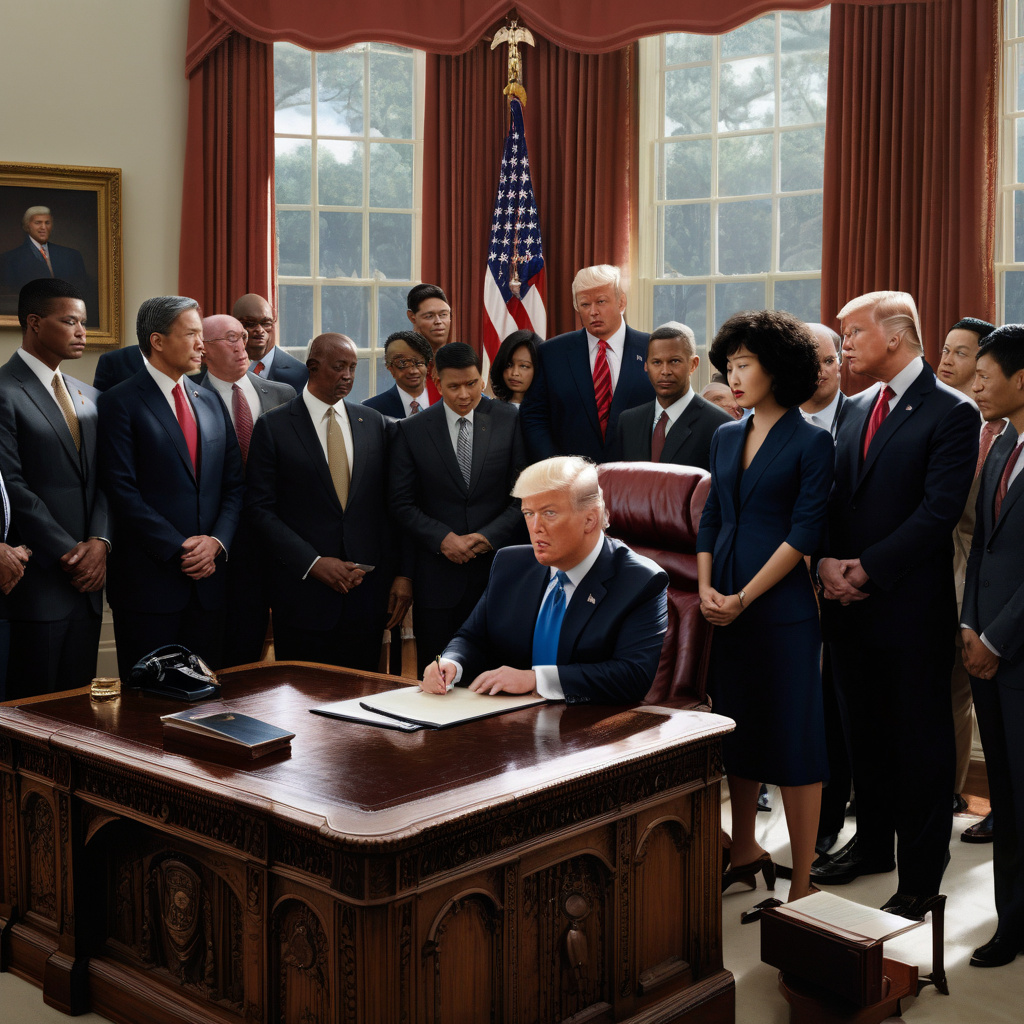100-Day Gift: Trump Signs Order Rolling Back Some Auto Tariffs Amid Investor Concerns
In a major relief to automakers, U.S. President Donald Trump has pulled back part of the auto tariffs imposed on imports, marking a significant shift in trade policy. The decision comes as a 100-day gift to the industry and has sparked both optimism and caution among investors and market analysts.
The move to roll back some auto tariffs is seen as a strategic step to ease trade tensions and boost the automotive sector, which has been grappling with challenges posed by the ongoing trade war. Trump’s executive order aims to support domestic automakers while also addressing the concerns of foreign car manufacturers and their impact on the U.S. market.
The automotive industry plays a crucial role in the U.S. economy, contributing to job creation, innovation, and overall economic growth. By revising the tariffs on auto imports, the Trump administration aims to create a more favorable environment for both domestic and international car manufacturers to thrive.
Investors have reacted to the news with a mix of excitement and caution. While the rollback of auto tariffs is expected to benefit automakers by reducing production costs and improving competitiveness, there are also concerns about the broader implications of the decision. Some analysts warn that the move could lead to retaliatory measures from trading partners and further escalate trade tensions.
The 100-day gift from Trump signifies a willingness to reevaluate trade policies and prioritize the interests of American industries. By taking steps to address the challenges faced by the automotive sector, the administration aims to stimulate growth, encourage investment, and create a more stable trade environment.
The impact of the tariff rollback is expected to be felt across the automotive supply chain, from manufacturers to suppliers and dealers. Lower tariffs could translate into cost savings for consumers, making vehicles more affordable and potentially boosting car sales in the coming months.
As the automotive industry navigates a period of transition and uncertainty, the decision to roll back some auto tariffs offers a glimmer of hope for stakeholders. It underscores the importance of strategic trade policies that balance the interests of various sectors and prioritize long-term economic stability.
In conclusion, Trump’s executive order to reduce auto tariffs represents a significant development in trade relations and has the potential to reshape the automotive industry in the months ahead. While the decision has been met with both enthusiasm and caution, its impact on the market and the broader economy remains to be seen. Stakeholders will be closely monitoring the implementation of the order and its implications for the future of the automotive sector.
trade, auto industry, tariffs, Trump, economy












